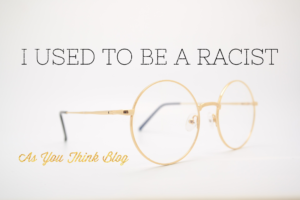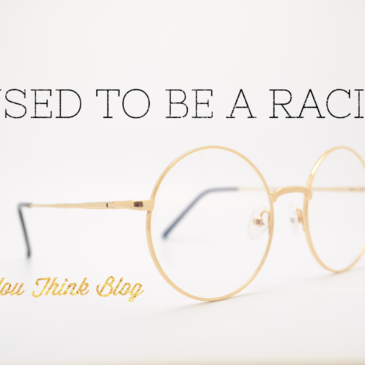 When I arrived home from work a few days ago, my wife was watching a movie. Nothing unusual about that. This is normal for her when she’s in chill-out mode and it’s usually a Hallmark flick. However, this time she was watching “The Help.” For those who have never seen this movie, it is based in 1963 Jackson, Mississippi. Southern society girl “Skeeter” (played by Emma Stone) returns from college with drams of being a writer. She stirs up a hornets’ nest by interviewing the black women who have spent their lives taking care of prominent white families. Only Aibileen (Viola Davis), the housekeeper of Skeeter’s best friend, will talk at first. But as the pair continue the collaboration, more women decide to come forward, and as it turns out, they have quite a bit to say.
When I arrived home from work a few days ago, my wife was watching a movie. Nothing unusual about that. This is normal for her when she’s in chill-out mode and it’s usually a Hallmark flick. However, this time she was watching “The Help.” For those who have never seen this movie, it is based in 1963 Jackson, Mississippi. Southern society girl “Skeeter” (played by Emma Stone) returns from college with drams of being a writer. She stirs up a hornets’ nest by interviewing the black women who have spent their lives taking care of prominent white families. Only Aibileen (Viola Davis), the housekeeper of Skeeter’s best friend, will talk at first. But as the pair continue the collaboration, more women decide to come forward, and as it turns out, they have quite a bit to say.
I grew up in the South. Southeast Texas, to be more precise. Racism was extremely prevalent in our community and in our family. I was probably 9 or 10 years old before I ever heard a black person referred to as anything other than a “nigger.”
The first time I watched The Help a few years ago, I had tears running down my face a couple of times. That is nothing out of the ordinary for me, as I’ve been known to shed a tear or two at certain movies that tug on my heart strings. This one was different. There was pain in those tears. I had experienced a change of heart many years ago concerning the races, although it was gradual. I felt both the pain of prejudice and the shame of knowing that the white families depicted in the movie could have easily been mine.
It was the same pain and shame I felt the first time I heard about The Trail of Tears. In 1838 and 1839, as part of Andrew Jackson’s policy, the Cherokee nation was forced to give up its lands east of the Mississippi River and to migrate to an area in present-day Oklahoma. The Cherokee people called this journey the “Trail of Tears” because of its devastating effects. I think I felt pain because I have some Cherokee blood in me, and shame because of the way my white ancestors treated them.
My change of heart came about as I began to realize that there’s no place in the kingdom of God for racism. It goes without saying that even though civil rights can be legislated (and they have), it doesn’t change the heart.
There was a time, years ago, when I would watch the news and see a black person upset about a perceived racial injustice and I would say, “These people have no right to be upset, they have equal rights now!” Again, legislation doesn’t heal a man’s heart.
Forgiveness.
Forgiveness heals the heart. I remember distinctly the day the healing process began in my heart. It was a chilly November day in Dallas, Texas at event called “The Call.” I, along with many others that day in the Cotton Bowl participated in acts of repentance for racial prejudices we had inherited from our ancestors. It was the most gut-wrenching weeping I had ever experienced as I saw my racial prejudices for what they were – sins that had nailed Jesus to the cross.
New creation is a process. From the moment we are born again, something completely new is set in motion. The new creation that we become looks exactly like Jesus.
If I were to ask every Christian in America if they are racist, my guess is that 99.9% would say, “No, certainly not!” That would have been my answer. I wish I could say that I had an instantaneous transformation in this area, but it’s been a slow process. Racism has fallen off of me one small piece at a time. I thought I was a pretty good Christian back in 1984 when I took a job working for the prison system in Texas, but some ugly things in my heart came to the surface. Ugly racial things. Little had changed in me those seventeen-and-a-half years working there. Prisons in America have a large, disproportionate number of black men and I was quick to tell anyone who would listen why I thought that was so, as if I knew.
With all the racial tension being highlighted in our nation today, I believe it would behoove us to consider that a major factor involved is pain. Until I understand the pain another person has experienced, I have no business making a snap judgment when I see them acting out. For instance, I’m not a black parent who has just lost a son in a shooting, so I have no idea what that feels like. What if I was willing to have a compassionate conversation with one of them and listen with my heart instead filtering it through the noise coming from the news media? That’s what I can see Jesus doing. Can you?
Healing the racial divide in America begins in my heart. It begins in our (white folks) heart. Prisons aren’t the answer. Violence isn’t the answer. Anger isn’t the answer. Your favorite presidential candidate isn’t the answer. We are. We are the church. Let it begin with us.
From a recovering, repentant, former racist,
Kevin.

